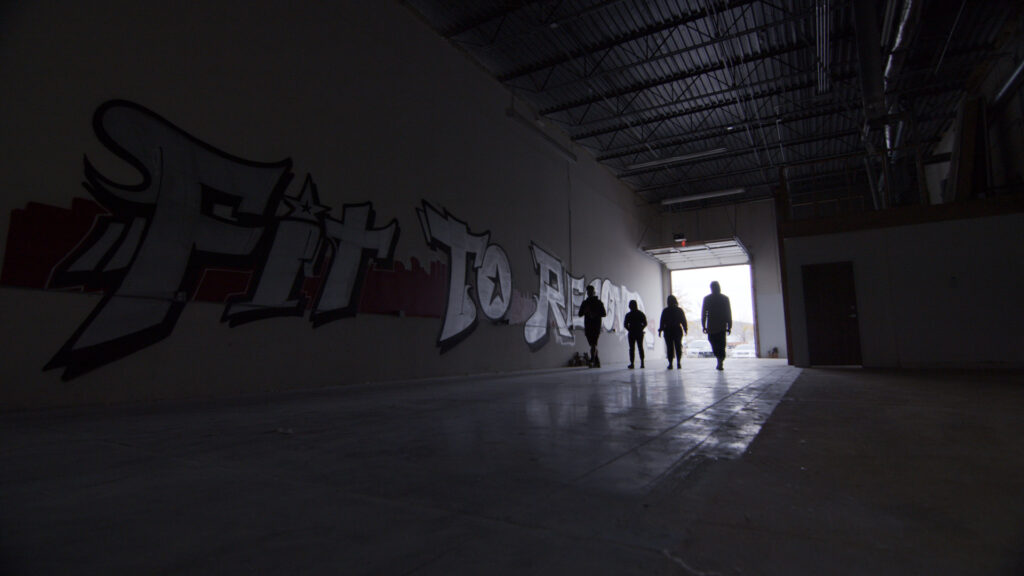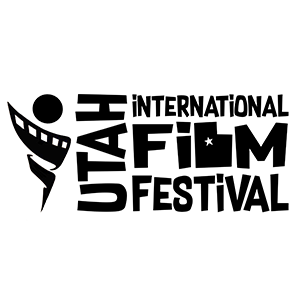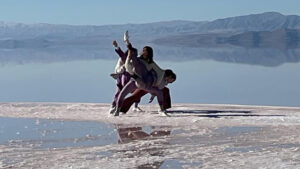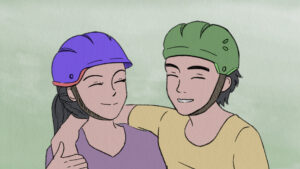Austin Heywood – Dream Chasers: The Fit to Recover Story

We had the opportunity to interview filmmaker Austin Heywood about his documentary Dream Chasers: The Fit to Recover Story. Dream Chasers is an official selection of the 12th annual Utah Film Festival.
What was the inspiration to make Dream Chasers?
There was a chance meeting between my co-director Lexi Kaili and a woman named Vachel Carter who worked with a non profit called Fit To Recover. They started chatting and Vachel told Lexi that they were looking to make a documentary about addiction recovery and Lexi responded that she worked as a producer on a film team that focused on social impact storytelling. Our team met with Ian Acker, the founder of FTR and we knew right away we wanted to work together to make this film.
From idea to completion, how did Dream Chasers change?
The main change was while we were still in pre production COVID happened and the gym was closed down for months and months. We couldn’t film, we didn’t know how this community would be affected or when classes would be meeting in person again. We ended up delaying the planned release by over a year but one of the unexpected benefits of that long pause was that we started thinking about different ways to visually illustrate the harsh realities of addiction. We were able to talk with some of our main characters and hear their stories and we had time to shoot scenes that were a little more abstract and that focused on the symbolism of how they described addiction. Those things included the feeling of drowning and coming up for air and the wreckage and destruction addiction can leave in its path. Those ended up being some of my favorite scenes in the film.
What was the biggest challenge in getting Dream Chasers made?
We had a very small team that included a few film students. We were able to get help from some good friends during production but post production fell entirely to me. I was still working on other client projects at the time, but this film and this topic were very personal and important to me and I just cared a lot about it so I spent a lot of time in post and most of that was done after normal work hours. There were a lot of all nighters. That was tough. Along with really caring about the film I think selfishly I wanted that level of creative control of the edit and so I didn’t ask for help, and looking back I regret that now, because I was just killing myself doing editing color and sound all by myself at night to finish it.
What do you think is the most important takeaway from Dream Chasers?
To me the most important takeaway is that it’s possible to heal from addiction and to have a healthy, happy life again and that to do that you need a strong community. Everything program FTR runs, every workout, every event, it all comes back to the community and building a place where people can be vulnerable, and can fail, and can be themselves and still be loved and supported. There’s nothing like being there in person and feeling that for yourself, but I hope this film can give people a piece of that, or at least let them know that healing is possible.
If you could have a do over with your film is there anything that you would do differently? If so, what would that be?
A part of me feels like I wouldn’t change anything because the hard parts and the mistakes taught me some important lessons. But another part of me wishes that I would have asked for more help, more insights from fellow filmmakers, and help to execute certain big ideas. I did some of that, but I wish I would have done it more. There is a great community of filmmakers here in SLC and I think most people are very open and willing to help where they can, or at least offer feedback. I wish I hadn’t held things so close to the vest. Part of that was maybe me feeling self-conscious or embarrassed about asking for help, but more collaboration would have only served to make the project better.
What do you have next in the works?
I’m currently writing a narrative screenplay called ‘Villain’ that explores the perceptions we all have about what makes a person “good” or “bad” through the lens of a young Korean-American man who experiences a series of disasters in his own life that force him to reevaluate how he sees himself. The film is inspired in large part by the music and persona of hip hop artist MF DOOM.
How can we learn more about you and your projects?
To learn more about the social impact films I’m making you can check out vimeo.com/sorensonimpact but to learn more about me and other projects I care about follow me on instagram.




